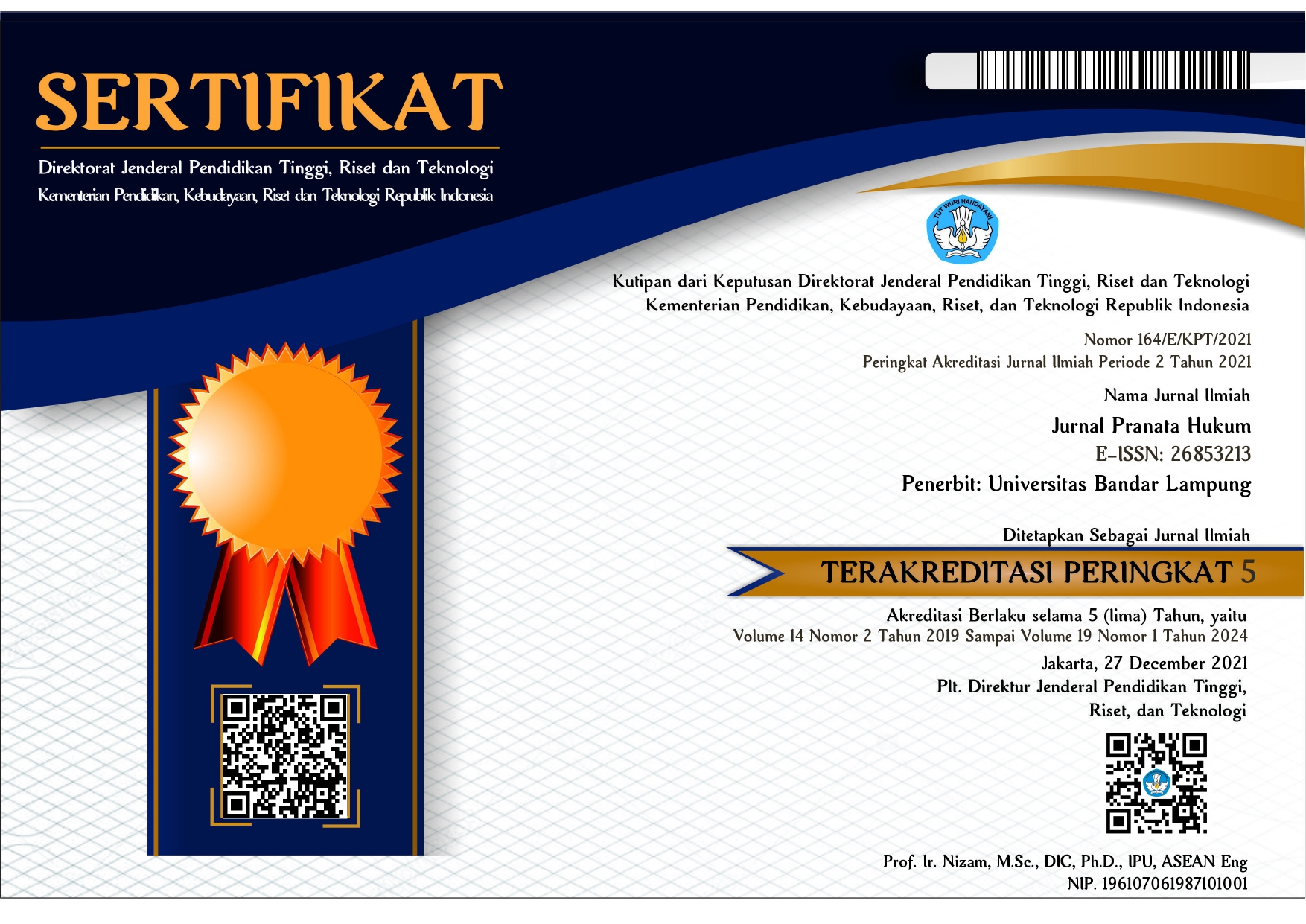THE BINDING POWER OF ELECTRONIC SIGNATURES IN CIVIL AGREEMENTS: A COMPARATIVE STUDY OF THE CIVIL CODE AND ELECTRONIC INFORMATION AND TRANSACTIONS LAW
DOI:
https://doi.org/10.36448/pranatahukum.v20i2.408Keywords:
Electronic Signature, Civil Agreement, Civil Code, ITE LawAbstract
Advances in information technology have brought significant changes in the way people draft and agree to agreements, including through the use of electronic signatures. In the legal context in Indonesia, the existence of electronic signatures has been given legitimacy through the Electronic Information and Transactions Law (UU ITE). However, on the other hand, the conventional civil law system is still based on traditional principles regulated in the Civil Code (KUHPerdata). This study aims to examine the extent of the binding force of electronic signatures in the realm of civil agreements, while at the same time comparing the approach of the Civil Code and the provisions of the ITE Law. The research was conducted using a normative legal method, through a review of laws and comparative legal analysis. The results of the study show that although normatively the ITE Law has provided a legal standing for electronic signatures, the Civil Code has not fully adapted to the dynamics of digital law. This inequality can raise doubts in practice, especially in terms of proof and validity of contracts. For this reason, steps are needed to harmonize classical civil regulations and digital laws and regulations in order to provide legal certainty for the parties in agreements made electronically.
Downloads
References
Alifah Rahma Yunita, et al. "National Civil Law in the Digital Era: Challenges and Opportunities in Personal Data Protection." Proceeding of Conference on Law and Social Studies. Vol. 4. No. 1. (2023).
Daffa, Muh Faraz, Sufirman Rahman, and Abdul Qahar. "The Probative Strength of Electronic Signatures as a Tool of Evidence in Civil Matters." Journal of Lex Philosophy (JLP) Vol. 4, No. 1, (2023).
Dahlan. "The Validity Requirements for Online Sales and Purchase Agreements Made by Minors According to the Civil Code." Malahayati Law Journal Vol. 4, No. 1 (2023).(Dahlan 2023)
Falaq, Muhammad Rava Imam, and Muhammad Tanzil Multazam. "The Importance of Electronic Signature Certification in Online Loans." Journal of Customary Law 1.3 (2024).
Lapian, Randy. "Regulation of the Use of Electronic Signatures According to Law No. 19 of 2016 Concerning Electronic Information and Transactions." Journal: Lex Privatum, Vol. 13, No. 1, (2024).
Putra, I. Komang Mahesa, "Application of Article 1320 of the Civil Code to the seller's responsibilities in sales and purchase agreements for goods via the internet." Journal of Legal Analogy, Vol. 2, No. 1 (2020).
Putri, Wahyu Suwena, and Nyoman Budiana. "The Validity of Electronic Contracts in E-commerce Transactions from the Perspective of Contract Law." Journal of Legal Analysis, Vol. 1, No. 2 (2018).
Salim HS. Contract Law: Theory and Techniques of Contract Drafting. Jakarta: Sinar Grafika, 2016.
Soerjono Soekanto and Sri Mamudji. Normative Legal Research: A Brief Review. Jakarta: Rajawali Pers, 2011.
Syakbani, Baehaki. "The Evidential Power of Electronic Documents with Electronic Signatures in Civil Court Proceedings." Valid Journal, Vol. 10, No. 4, (2013).
Wahyuni, Eka, Sufirman Rahman, and Andi Risma. "The Validity of Digital Signatures/Electronic Signatures Reviewed from the Perspective of Civil Law and the ITE Law." Journal of Lex Generalis (JLG), Vol. 3, No. 5 (2022).
Downloads
Published
Issue
Section
License
Copyright (c) 2025 PRANATA HUKUM

This work is licensed under a Creative Commons Attribution-ShareAlike 4.0 International License.
All articles published in the Pranata Journal are licensed under the Creative Commons Attribution-ShareAlike 4.0 International License (CC BY-SA 4.0). This license allows others to share, copy, distribute, adapt, and build upon the work, even for commercial purposes, as long as appropriate credit is given and derivative works are licensed under the same terms.




